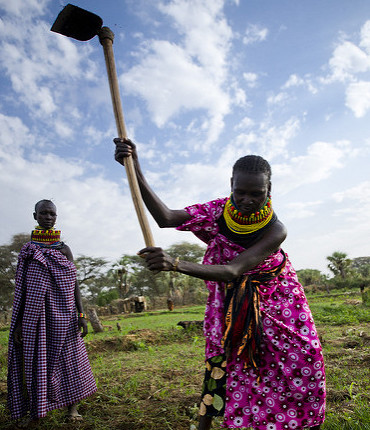Resources
Displaying 1936 - 1940 of 2258Compensation for Expropriated Community Farmland in Nigeria:
In Nigeria, the recurring impoverishment and other negative socioeconomic impacts endured by landholders affected by expropriation are well-documented and call into question the Land Use Act’s (LUA) effectiveness in protecting local land rights. The World Bank’s Land Governance Assessment Framework found that, in Nigeria, “a large number of acquisitions occurs without prompt and adequate compensation, thus leaving those losing land worse off, with no mechanism for independent appeal even though the land is often not utilized for a public purpose”.
The Community Land Act in Kenya
Kenya is the most recent African state to acknowledge customary tenure as producing lawful property rights, not merely rights of occupation and use on government or public lands. This paper researches this new legal environment. This promises land security for 6 to 10 million Kenyans, most of who are members of pastoral or other poorer rural communities. Analysis is prefaced with substantial background on legal trends continentally, but the focus is on Kenya’s Community Land Act, 2016, as the framework through which customary holdings are to be identified and registered.
Water Rights on Community Lands: LandMark’s Findings from 100 Countries
This paper analyzes whether national laws acknowledge indigenous peoples and other rural communities in 100 countries as owners of waters that arise within their lands. Results derive from information collected by LandMark to score the legal status of community land tenure. Findings are positive; half of all countries recognize communities as lawful possessors of water on their lands. Three quarters permit communities to manage the distribution and use of water on their lands.
Global Hotspots of Conflict Risk between Food Security and Biodiversity Conservation
The global challenges of food security and biodiversity are rarely addressed together, though recently there has been an increasing awareness that the two issues are closely related. The majority of land available for agriculture is already used for food production, but despite the productivity gains, one in nine people worldwide are classified as food insecure. There is an increasing risk that addressing food insecurity through methods such as agricultural expansion or intensification could lead to biodiversity loss through destruction of habitats important for conservation.
In the Land of the Dammed: Assessing Governance in Resettlement of Ghana’s Bui Dam Project
Resettlement resulting from dam construction has raised several concerns due to the negative aftermath impacts. In Ghana, the construction of three hydroelectric dams resulted in large-scale resettlements. Given the little experience that Ghana has in resettlements, it is necessary for a robust monitoring structure for resettlements. However, this was not available in the last resettlement undertaken for the Bui Dam Project. This paper aims at developing an assessment framework for monitoring resettlement activities on customary lands from a good governance perspective.



